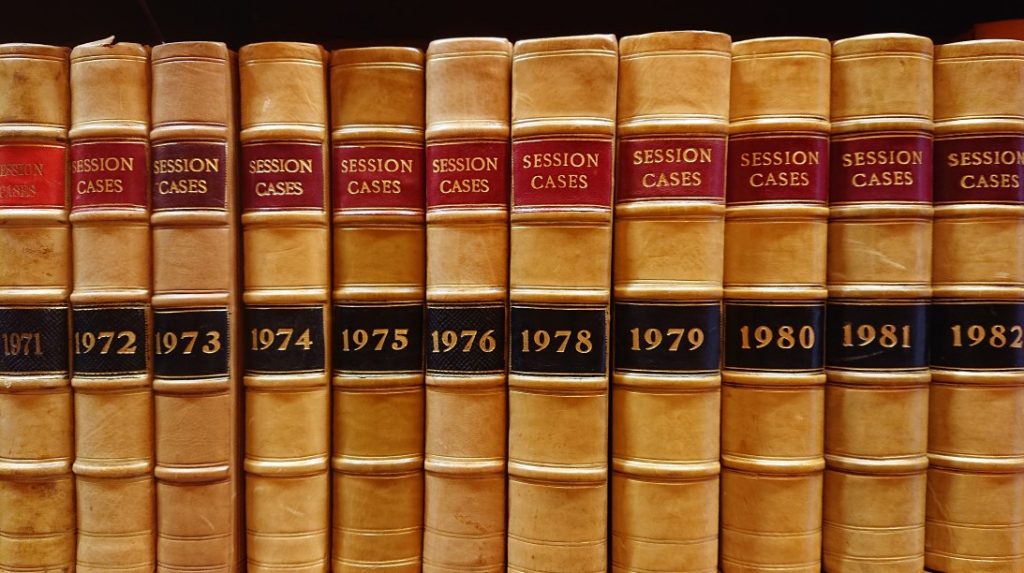We’d like to introduce you to Noah Norbash, one of your fellow students who is a specialist in working with LexisNexis and all their resources – such as the invaluable LexisLibrary and Lexis PSL databases! We recently met with Noah to discuss what he has planned for the year, and he’s answered the following questions so you can get to know him too.
Tell us a little bit about yourself! Who are you and what do you study at Edinburgh?

Noah outside the magnificent buildings of Old College
I’m Noah – currently a student in the Graduate LLB programme. I grew up in the United States just outside of Boston, but I have spent many a year studying and living in St Andrews, the Veneto region of Italy, London, and finally here in Edinburgh!
Why did you apply to be the student representative for LexisNexis?
I applied to be the LexisNexis Student Associate on campus to not only enhance my own understanding of legal databases, but also to convey my knowledge to my fellow students. As an added extroverted bonus, I also get to have a bit of a chat here and there with interesting people! LexisLibrary has been of extraordinary help to me in my degree programme so far, and no doubt LexisPSL will be of equal significance when I begin the diploma and a traineeship. As a simultaneous LawPALS leader and a LexisNexis Student Associate, I looked forward to giving members of the university community the tools to succeed and achieve whatever they put their minds to.
What do you think is the best feature that Lexis offers for students in the Law School?
The #1 top-notch feature that can be accessed on LexisLibrary is without a doubt the Stair Memorial Encyclopaedia – it is a resource exclusive to LexisNexis, and it contains a wealth of information on every imaginable topic in Scots law with links to any relevant case law and legislation. In a nutshell, it serves as a textbook on the entirety of the laws of Scotland, and its usefulness cannot be overstated! When it came to preparing for moots or even getting a birds-eye view of material in advance of tutorials, the Encyclopaedia can quickly steer you in the right direction for where you need to go.
If you could name one top tip that everyone should know about your platform, what would it be?
A top tip everyone should know about the platform is that you can easily narrow searches of case law to only a particular firm: this is especially useful to those seeking a traineeship to be able to discuss specifically what issues their firm of choice may be facing in today’s legal climate. There is no better way to stand out from the crowd in an interview setting – being able to express niche insider-quality knowledge about the firm that is totally available to applicants is a spectacular way to impress. By reading a firms’ submissions and the judge’s opinion on LexisLibrary, you as an applicant can see the fruits of the firm’s labour and gain a clearer understanding of what the firm seeks to achieve in the courtroom.
When students book a training session with you, what can they expect to get from the meeting?
When students book a training with me, they can expect to gain insight into how to use LexisNexis software in an approachable and friendly setting. Over the course of the year, I will be running training sessions for Foundation- and Advanced-level LexisLibrary Certifications, LexisPSL certification, and Commercial Awareness more generally. Otherwise, students can get in contact with me for any Lexis-themed questions and I will be happy to help! Although I’m not an expert on par with the full-time Lexis Customer Success Managers, I will do all I can to imbue you with the knowledge I have been given and to give you a solid base of LexisNexis database-searching skills that will prove indispensable for the legal journey of your lifetime. Don’t be a stranger!
You can find Noah in his new and fabulous Teams group: tinyurl.com/LexisCorner
Alternatively youcan reach him by email at n.norbash@sms.ed.ac.uk.
















